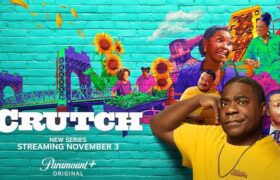Cynopsis: How do you explain the popularity of the franchise?
Weinstock: For any series in this genre to be successful, it always comes back to the cast. I think Atlanta really struck a chord because this particular group of women is extremely funny, very relatable, and they allow themselves to be vulnerable. It was the first Housewives series that featured a mostly African American cast, and their stories and experiences, while certainly appealing to African American audiences, really resonated and attracted viewers across the board.

Season 9 of Atlanta (Mark HIll)
Weinstock: Nothing is scripted. As for what heightens the drama, it has a lot to do with the compression of each story. We’re filming with the casts for many months at a time and then must fit everything we’ve captured into the number of episodes we’ve been given. Of course, we choose to include the most defining moments of each story – biggest highs and greatest lows. That process elevates both the drama and comedy.
Cynopsis: What are the differences between the Housewives series? How much does the city impact the personality of the show?
Steven Weinstock: Both Atlanta and Potomac have a very distinct culture and feel, and I think each cast reflects the sensibilities of their community. With The Real Housewives of Atlanta, you’ve got a Southern metropolis that’s very diverse, a budding music scene, and the vibe is a bit sassier, more brazen, with not much attention paid to formalities. In Real Housewives of Potomac, the community is rooted in structure and class. It’s more generational, there’s older money and you can really sense the awareness and focus on etiquette and formality.

The Real Housewives of Atlanta (season 7)
Weinstock: It all comes back to authenticity. We definitely look for big personalities, people who are living large and have an interesting story to tell, but they also need to be relatable and – for lack of a better word – real. An immediate red flag is when you see somebody posing or projecting a persona that isn’t herself. You have to be able to tell the difference between the real NeNe Leakes and someone who’s trying to be a NeNe Leakes-type. As soon as we see someone who is trying to be someone other than themselves, it’s a big problem.
Cynopsis: How do you see unscripted transitioning over the next 5-10 years?
Weinstock: Obviously, the landscape is evolving at a faster rate than ever before, and the industry’s exploding with new platforms, more buyers and more content. But from our perspective, content is content, and good stories will always be valuable, whether they’re told on broadcast, cable or OTT. So of course, at different times, certain genres and personalities will be in higher demand – depending on the particular trend that’s emerging – but five years down the line when hundreds of new shows have come and gone, it’s the series with authentic characters and a great story to tell that will be entering season eight or season nine.
The Cynsiders column is a platform for industry leaders to reach out to colleagues, followers, and the public at large. In their own words and in targeted Q&As, columnists address breaking news, issues of the day, and the larger changes going on in the ever-evolving world of television, video and digital. Cynsiders columns live on Cynopsis’ main page and are promoted across all daily newsletters. We welcome readers’ comments, queries, and column ideas at Lynn@Cynopsis.com.
 Bravo‘s Real Housewives franchise has proven not only popular, but enduring. On the eve of the season 9 premiere of The Real Housewives of Atlanta on Sunday, November 6 at 8p, Steven Weinstock, executive producer of the Atlanta and Potomac versions, and Co-president and co-CEO, True Entertainment and Original Media, shares some secrets of the reality shows’ success.
Bravo‘s Real Housewives franchise has proven not only popular, but enduring. On the eve of the season 9 premiere of The Real Housewives of Atlanta on Sunday, November 6 at 8p, Steven Weinstock, executive producer of the Atlanta and Potomac versions, and Co-president and co-CEO, True Entertainment and Original Media, shares some secrets of the reality shows’ success. 








